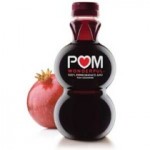PR + Google Wave: When opportunity meets overkill


- Adding a journalist / blogger on Facebook and entering into a trusted network only to blatantly pitch said journalist / blogger on his or her "wall"
- Spam @ messaging a journalist / blogger on Twitter multiple times to get them to review / write about your news or technology
- Commenting on unrelated FriendFeed posts to try and get the writer's attention
Those are annoying yet pretty controllable by either taking the person out of your network or blocking them. However, my ZDNet colleague Jason Perlow yesterday pointed out a new form of digital marketing spam that's harder to control -- and wickedly invasive: Google Wave spam.
It appears that POM Wonderful, the popular brand of pomegranate juice, was experimenting with Google Wave by adding a group of food bloggers to an unsolicited Wave. Perlow writes:
Well, welcome to the next generation of spam. Commercial, unsolicited Google Waves. As if using and trying to get used to Google Wave was bad enough, the PR agencies and marketing firms of the world have decided to start taking advantage of us, because we’re a captive audience and if they’ve ever contacted us in the past via e-mail on GMail, they now have a full contact database of people to torture by Google Wave if they were able to get an invite onto the system.
But it's more than just annoying. It's risky. Perlow points out that since Wave is designed to be collaborative, and people can't opt out of Waves, by the time you delete an unsolicited Wave the damage is done. "People who have never made acquaintance with each other do not necessarily want to be “Waved in” with other people. There’s no “Blind CC” with Wave. Obviously Wave Etiquette is venturing into the world of the unknown," he writes.
Is this a time when the PR and marketing industries need to police themselves? I had a colleague once say to me, "If you're out there, you deserve to be contacted." However, does that mean that if you have an email address -- or a Google Wave account -- are you supposed to lie down and just take unsolicited spam and Waves?
"In a perfect world, PR people would have such a great story, tailored so perfectly to the right journalist, that they could deliver it by carrier pigeon and it would still get printed," said Peter Shankman, founder and CEO of Help A Reporter Out (HARO). "Sadly, a good number of PR people use technology as a crutch to mask their lack of a good pitch, lack of homework, and lack, in the end, of caring about their craft. And that's sad. For a lot of PR people, Google Wave is just the next crutch."
What do you think? Let me know in the TalkBacks.